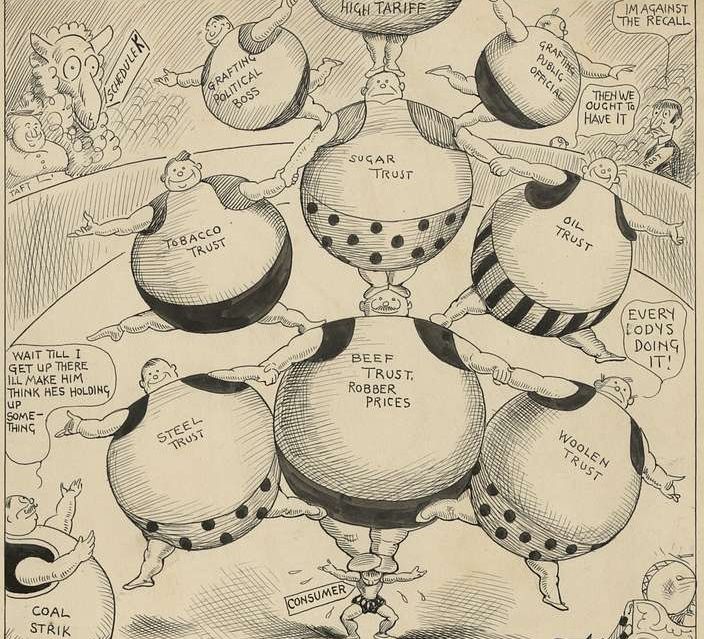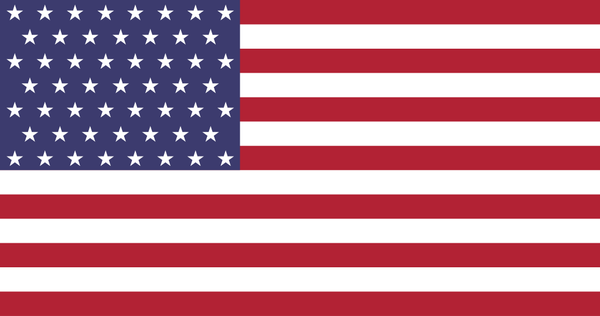"Monopoly" Beyond Economics

From governments looking to sue or regulate and politicians grandstanding, through to journalists or politically-inclined observers raising a concern about corporate power, the idea of “monopoly” is often used to set the stage for a discussion on the market position and power of companies like Google and Facebook.
Many in self-proclaimed free market and pro-capitalist circles seem to have decided that the usage of “monopoly” is the issue at hand, and their contribution to the conversation will begin and end on that exact note. They get in with how they use the word, and get out with how others shouldn’t. They‘ll spend an entire article reminding people that a monopoly is only properly understood as sole or exclusive control of a position in industry (or ownership of something), and hence sole or exclusive provision of a kind of product or service. And, in turn, this explanation is often capped off by reminding people that a discussion of big tech companies as monopolies is therefore not only wrong (there are other social networks!), but that it has been misapplied before in this space (people used to think MySpace was a “monopoly”!), and that it’s silly to think of big tech in these terms since competition is, and was, still allowed to do its thing in this industry (where’s MySpace now?!).
The formal model of market monopoly that economists make use of is very valuable, but does not itself have a monopoly on discussions of market power, nor should it. Running someone through economics 101 as rebuttal, and then packing it in for a day, doesn’t address anything close to the bigger point others are trying to bring to the table. The issue of market or corporate power possessed by big tech and their influence on consumers and government does not vanish when we establish that Google isn’t the only search engine, and that other people aren’t precisely applying the economist’s language and model of understanding, and that other people are applying an incorrect model of understanding to the discussion.
Most people understand that Facebook isn’t the only social network in existence, that Google isn’t the only search engine available (or the only way to place keyword ads), and that every tech and media company doesn’t solely own its own slice of the market pie. Rather, they are trying to get to a valid discussion about the heavy concentration of economic power that a) drastically narrows the competitive playing field naturally, b) perhaps does so by different forms of state-enforced corporate privilege as well (for example, intellectual property regimes, the benefits of limited liability, or the webs of corporate holding and subsidiary schemes that enable creative accounting) and c) results in a relatively small set of decision-makers having an element of control and influence that affects key aspects of social life in a potentially troubling way simply due to their economic power, size, and the ubiquity of certain services and products. Again, where your mind is on either of those pillars of conversation isn’t the point—actually thinking on and getting into those issues with other people from different perspectives and frameworks of understanding is.
The idea of troublesome or unjust concentration of industry and economic power (and in turn, political and social influence) being described as “monopoly” doesn’t happen because there’s a bunch of people on Twitter who haven’t been taught the correct way to understand the world. The history and usage of this concept and term has been more flexible and meaningful than some intellectual circles want to recognize, and that doesn’t leave the social lexicon overnight. Different perspectives, schools of thought, and ways to enter the conversation on economic power and concentration are valid.
Unfortunately, the second-hand ideas market and public discourse often doesn’t work with that kind of openness. And, those who fancy themselves learned in free market thinking and economics often start by seeking to completely debunk or dismiss other frameworks of understanding and conversational starting points by pointing out differences of term usage and frameworks of understanding. When it comes to the concentration of economic power and “monopoly”, this often happens especially with, for example, thinkers, works, and ideas that seem to be too Marxist for consideration. Yet, to exercise a form of intellectual discipline that tells you stop short of actually learning about and engaging with these kinds of ideas and perspectives because their terminology or frameworks are incorrect would be to cheat yourself out of an additional dimension for your own thinking, not to mention completely missing the point others are looking to engage on.
Take Lenin’s essay Imperialism, The Highest Stage of Capitalism. In there we find Lenin presenting proof points on the “remarkably rapid process of concentration of production in ever-large enterprises” combined with “the enormous growth of industry” within the stage of capitalism he was observing — which, in turn, caused economic and social dynamics worth paying attention to. It’s quite an interesting read, not only for the fact that Lenin makes a point of citing not the work of Marxist, but “bourgeois” economists, to trace the increasing consolidation of business power and capital (and its cooperation with the state); but also in how he contrasts this with “free competition” at earlier stages in history where “monopoly [was] in the barely discernible, embryonic stage.” The student of free marketeers should note that Lenin (and other Marxists) — who understood economic trends as a matter of history and human affairs taking its natural course in stages — saw the concentration of business power as producing hubs of consolidated economic and political decision-making so powerful that a state-communist society could take over to direct economies — something that would be nearly impossible to do during the phases of truly free-market competition.
In any event, Lenin frames the concentration of capital and economic power as the emergence of various “monopolies” and “monopoly” power to no end. The model of understanding of he uses implies both a certain end-stage of “monopoly” where there would quite literally be one of such and such company or set of decision-makers, and on the other hand the stage of “monopoly” he was observing that saw certain banks and manufacturing conglomerates as huge, powerful, ever-absorbing other smaller companies and becoming market (and political) dictators in their domain rather than market actors.
So, where is the intellectual action here? Is it to read multiple pages of this interesting work, claim victory when you find frames of reference that don’t match up to your orthodoxy just right,publish 800 words on Lenin’s incorrect understanding of “capitalism” and “monopoly,” and file him away as a silly Marxist that doesn’t understand economics? (Didn’t he know there was more than one producer of steel!?). Indeed, almost anyone can write that quick blog and be paid for it by an American libertarian content outlet — and people often do, and are quite proud of themselves.
However, they have contributed almost nothing of additional value to the conversation and those trying to learn about the primary issue at hand and the world through it. Facing the underlying points Lenin is making is much more interesting. To do that, you have to allow yourself understand the context of the concepts he is using for the sake of his essay, his model of understanding, and how these elements are being used when highlighting certain examples in the way of a social or economic critique. That kind of approach and understanding is, unfortunately, not necessarily the norm in the quick-hit free market article or hot take sector right now.
Which all brings us back to the point about contemporary discussion on “monopoly” in big tech, or other industries. Where is the intellectual action and usefulness if the word “monopoly” is put forward in a conversation to refer to economic power in the modern state of our current global economic system?
If one can get past the admittedly comedic and often-times unhelpful single tweet from the conservative or admitted state-socialist loosely using the idea of “monopoly” to describe any business practice they don’t like, focus on the more honest people talking about corporate power, and try to understand what they’re actually getting at, perhaps we would be engaging then in more fruitful conversations. Usually, they’re never talking about an entity being the “only” one doing one thing or another, but rather how economic power is used to further enrich and entrench a group’s market position unjustly — often from a protected position somehow supported or granted by the state to suppress market pressures. A discussion on proper economic thinking and orthodoxy might be useful after, but is often an unhelpful distraction and sidebar initially.
Of course, both sides must be willing to move to that fruitful conversation, but as they say, it takes two to tango. And, unfortunately, whether it’s “monopoly,” “capitalism,” “socialism,” or any other idea that gets loaded by different people in different ways, many a self-proclaimed proponent of free markets blame only the other end of the dance of conversations for missteps, misunderstandings, false starts, wheel spinning, and dead ends.
Featured Image is The Monopoly Brothers Supported by the Little Consumer




